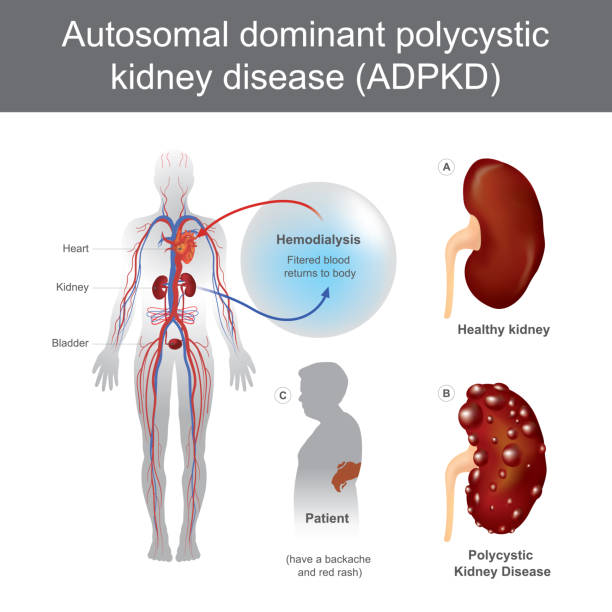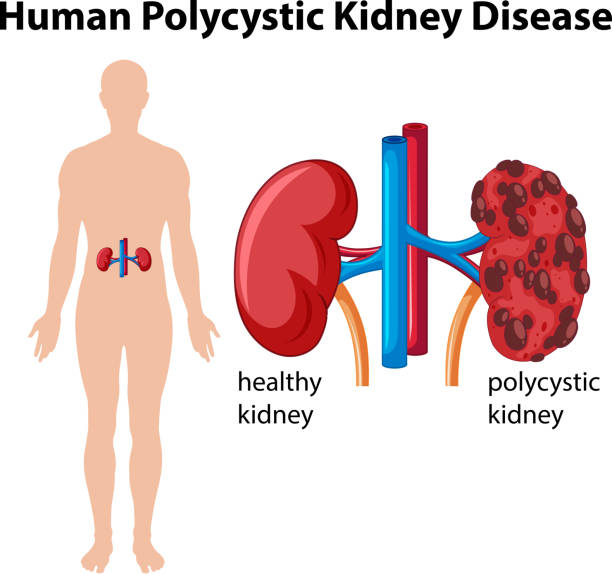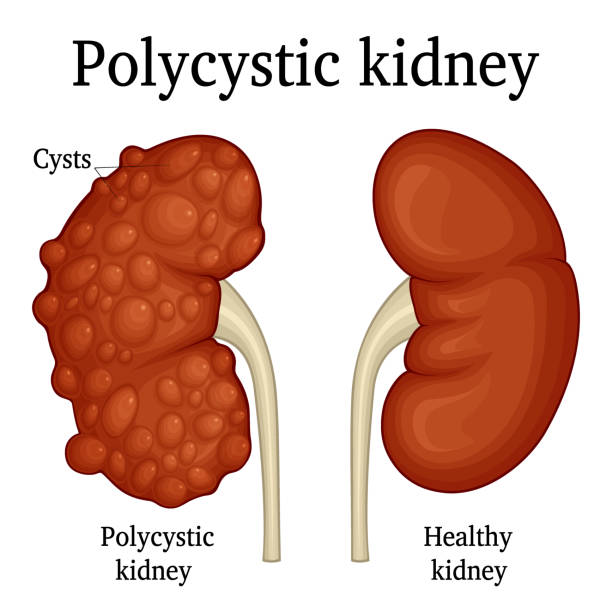When diagnosed with Polycystic Kidney Disease (PKD), it is natural to feel overwhelmed. PKD is an inherited genetic disorder that causes numerous cysts to form in the kidneys. It is a progressive condition and can cause permanent kidney damage if left unchecked, eventually leading to kidney failure. Despite this, living with PKD does not have to be a burden. With the right information and support, you can successfully manage the condition and maintain a high quality of life. In this article, we will discuss what you need to know about living with PKD, including the symptoms, treatments, and other helpful tips.
PKD is a genetic disorder that causes a reduction in kidney function over time. It is found in all races and genders, and can affect people at any age. PKD often begins with enlarged kidneys, which become filled with fluid and form cysts. As the condition progresses, these cysts can cause damage to the kidney tissue and result in decreased kidney function and renal failure. PKD is most common in people of East Asian descent, particularly in those of Chinese, Japanese, and Korean descent. Those with a family history of the disease, or who identify with the above ethnicities, should consider getting tested for PKD. People who have PKD are at a higher risk of developing other kidney diseases, such as kidney stones and kidney infections.
Reference Source

As stated, PKD causes increased fluid in the kidneys and can lead to kidney stones or kidney infections. In addition, people with PKD often experience blood in their urine, as well as frequent urination. While there are no symptoms specific to PKD, these common kidney-related issues can be a sign of the disease. In order to better understand the signs of PKD, it is helpful to understand the anatomy of the kidneys. The kidneys are two bean-shaped organs located above the bladder. Each kidney filters your blood to remove wastes and extra fluids, then transports the clean blood to your bladder via the ureters. In addition to cleaning the blood, the kidneys also help control blood pressure and produce hormones that regulate blood sugar.
There is no cure for PKD, but it can be managed through early detection and treatment. If you are at a higher risk of developing PKD, it is important to get tested for the condition. Your doctor can conduct a blood test to determine if you have the disease. If the blood test shows signs of PKD, your doctor will recommend regular follow-up tests to track your kidney function. The type and frequency of these tests will depend on your specific condition. If you are diagnosed with PKD, it is important to maintain a healthy lifestyle and avoid any unnecessary risks to your health. This includes getting adequate sleep, eating a balanced diet, and exercising regularly. As PKD is a genetic condition, there are currently no available treatments.
Reference Source
If you are living with PKD, it is important to take care of your health by getting regular blood work and seeing a doctor regularly. It is also helpful to make healthy lifestyle changes, such as eating a balanced diet, staying hydrated, getting enough sleep, and exercising regularly. One helpful tip for staying hydrated is to keep a water bottle with you at all times. This will make it easier to remember to drink water. Another helpful suggestion is to make time in your schedule to exercise. It is important to find a form of exercise that you enjoy and that makes you feel good. It is also important to stay connected with your loved ones. Find ways to stay connected with your friends and family. This can be helpful to keep your spirits up and make you feel less alone.
Living with PKD can be frustrating, but there are lots of ways to cope with the condition. First, it is important to know that you are not alone. An estimated 10-30% of the global population is living with PKD, and many of these people find it helpful to connect with others who are living with the condition. One helpful way to cope with PKD is to use a journal to track your progress. Journaling can be a great way to process your feelings, stay organized, and reflect on your progress. It can also be helpful to talk to a counselor if you find yourself struggling. Talking to a counselor can be a helpful way to get support, process your feelings, and learn how to cope with the condition.

There are many resources available for people with PKD, including support groups and social media groups. These groups are a great way to connect with others who are living with PKD and can help you manage the condition. In addition, there are several blogs written by people with PKD, which can be helpful reading if you are struggling. If you have PKD, it is important to remember that you are not alone. With the right support and care, you can live a healthy and fulfilling life with PKD.Thank you so much for read my blog.
Reference:
https://www.kidney.org/atoz/content/polycystic
https://www.kidneyfund.org/all-about-kidneys/types-kidney-diseases/polycystic-kidney-disease
https://pkdcure.org/living-with-pkd/#:~:text=If%20you%20or%20someone%20you,with%20your%20health%20care%20team.
https://www.niddk.nih.gov/health-information/kidney-disease/polycystic-kidney-disease/what-is-pkd
https://www.webmd.com/a-to-z-guides/ss/slideshow-living-with-adpkd

Great suggestions patients or individuals living with PKD, one thing i believe readers would take from this aside the knowledge of the condition is the fact that keeping a water bottle on you would help prompt you to take in lots of water. thanks for that
I try to my level best. I am glad to you take love dear 🥰
Thank you
I am beginning to wonder which one is much more deadly between this and kidney stones